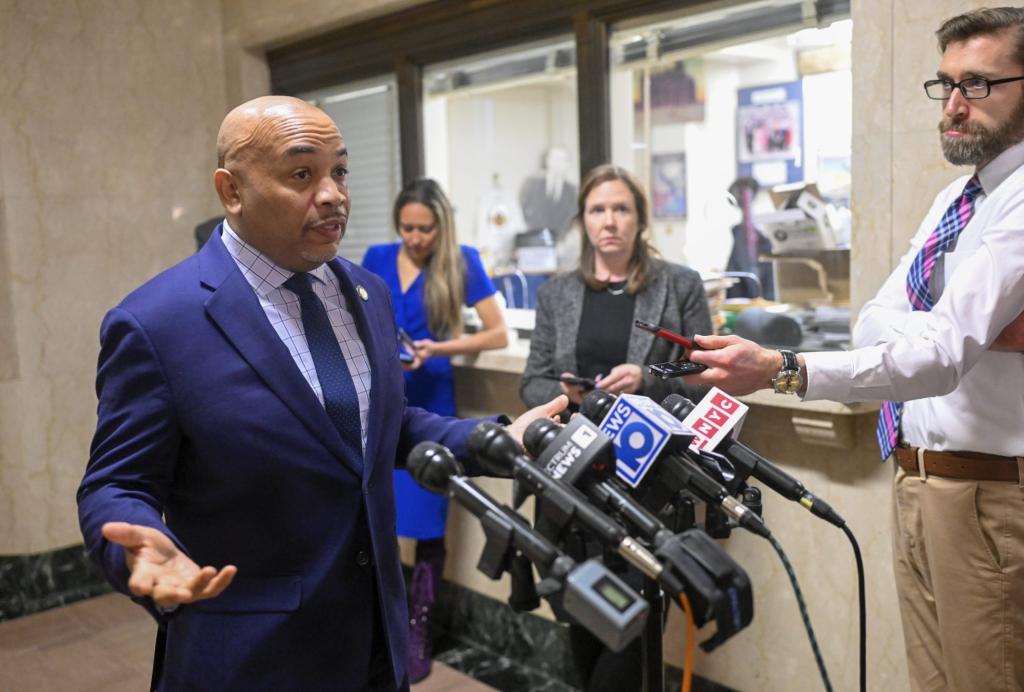In a recent statement, Assembly Speaker Carl Heastie expressed his disbelief that raising penalties could act as a deterrent to crime. This perspective is concerning given the fundamental role penalties play in preventing criminal behavior. This belief could contribute to the current increase in crime and disorder throughout New York state. Heastie’s stance raises questions about his competency and understanding of basic human nature when it comes to law and order.
Heastie’s comments were in response to Governor Hochul’s efforts to address the $4.4 billion retail theft industry and assaults on retail workers. He suggested that alternative methods could be used to combat these issues, hinting at a lack of concrete strategies. By dismissing the effectiveness of penalties, Heastie overlooks the crucial role they play in maintaining order in society. Penalties, along with other factors like the likelihood of being caught and convicted, are essential components of deterrence in criminal justice systems.
Progressive ideologies that advocate for relaxed policing and punishment have contributed to a weakened criminal justice system in New York. Efforts to reform criminal laws often result in unfavorable outcomes such as reduced convictions and sentences for offenders. Heastie’s position aligns with these sentiments, indicating a lack of priority for the safety and well-being of law-abiding citizens. As a leader in the Bronx Democratic machine, Heastie has significant influence over the selection of judges who may impact law enforcement and crime prevention efforts.
The fact that Heastie sees criminals and their supporters as his constituents rather than law-abiding citizens is troubling. This perspective reflects a skewed sense of priorities and values, potentially undermining efforts to maintain public safety. If Heastie’s fellow Assembly Democrats share his views, they should consider electing a new speaker who prioritizes the interests of the community. The lack of accountability and emphasis on penalties for criminal behavior are indicative of a larger issue within the state’s political landscape.
By downplaying the importance of penalties in deterring crime, Heastie reveals a fundamental misunderstanding of basic principles of law enforcement. Effective measures to combat criminal activity require a combination of penalties, law enforcement resources, and community engagement. Failure to recognize the significance of penalties in this equation could result in adverse outcomes for public safety. Heastie’s dismissive attitude towards penalties as a deterrent raises concerns about his ability to effectively address the rising crime rates in New York.
Overall, Heastie’s controversial stance on penalties as a deterrent to crime demonstrates a misguided approach to law enforcement and public safety. As a key figure in the state’s legislative body, his statements have far-reaching implications for criminal justice policies and outcomes. It is essential for leaders like Heastie to acknowledge the role of penalties in deterring criminal behavior and work towards effective solutions to address the challenges faced by communities. Failure to do so could further exacerbate issues related to crime and disorder in New York state.


